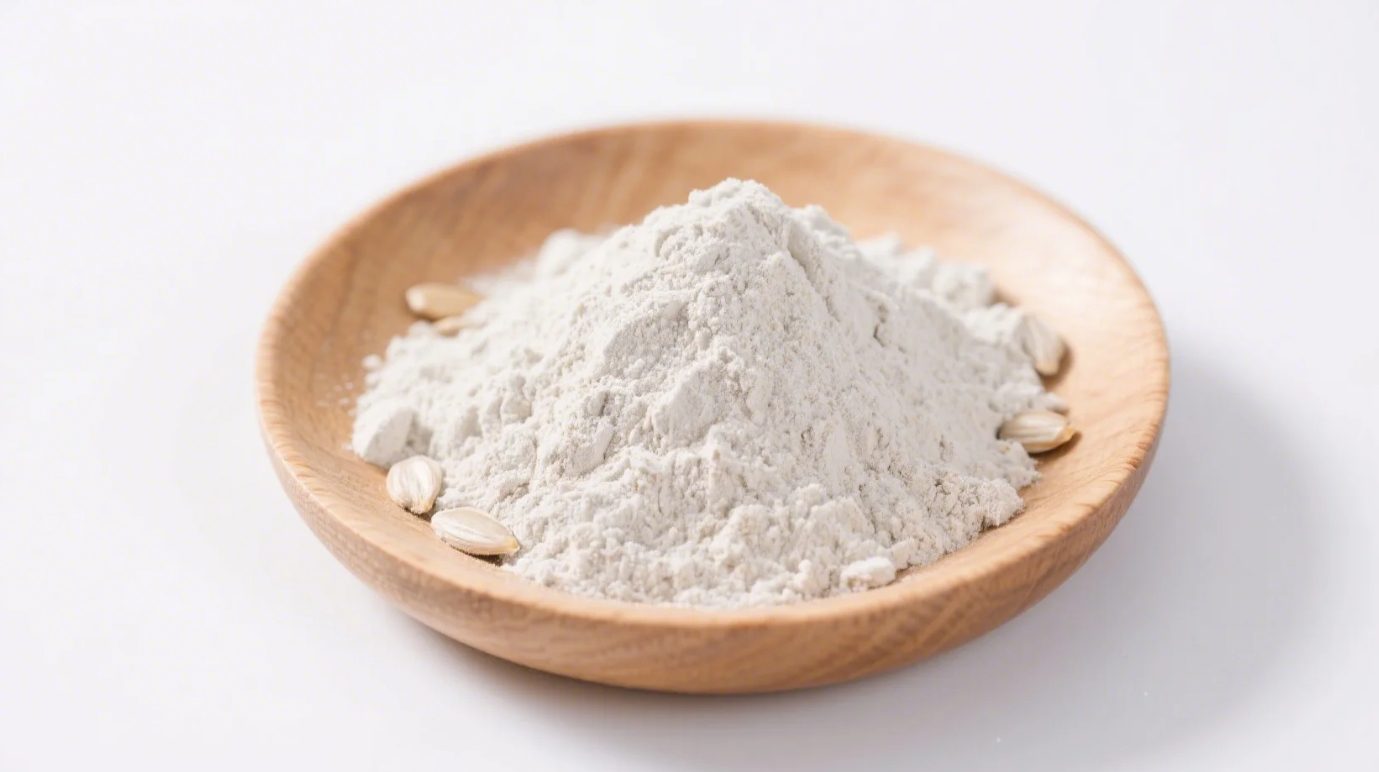Table of Contents
What is Organic Sunflower Seed Protein?
Organic Sunflower Seed Protein Powder is a clean-label, plant-based protein isolate derived from cold-pressed Helianthus annuus seeds. With 60% protein content and a balanced amino acid profile, this hypoallergenic superfood supports muscle recovery, immune health, and sustainable nutrition. Free from soy, gluten, and dairy, it’s perfect for sensitive consumers.
Key Highlights
- Plant-Powered Nutrition:
- Protein Content: ≥60% (dry basis) – rich in branched-chain amino acids (BCAAs) and glutamic acid.
- Complete Amino Acids: Contains all 9 essential amino acids, with a PDCAAS score of 0.7.
- Hypoallergenic:
- No soy, gluten, or nuts – safe for food-sensitive individuals.
- Clean & Sustainable:
- Neutral, nutty flavor ideal for sweet and savory applications.
- USDA Organic, EU Organic, non-GMO, vegan.
Specifications
| Parameter | Details |
|---|---|
| Source | Organic sunflower seeds (Helianthus annuus) |
| Processing | Cold-pressed, low-temperature milling |
| Appearance | Creamy beige fine powder |
| Protein Content | ≥60% (dry basis) |
| Fat Content | ≤8% (naturally occurring healthy fats) |
| Fiber Content | 6g/100g (soluble & insoluble) |
| Solubility | Water-dispersible (emulsifier-free) |
| Shelf Life | 18 months (store in cool, dry place) |
Key Features & Benefits
- Muscle & Recovery:
- BCAAs (15% of protein): Supports post-workout muscle repair and growth.
- Arginine: Enhances blood flow and immune function.
- Digestive Health:
- High digestibility (92%) with no bloating or gas.
- Prebiotic fiber feeds beneficial gut bacteria.
- Allergy-Friendly:
- Safe alternative to soy, dairy, and pea protein.
Applications
- Sports Nutrition: Protein shakes, bars, and plant-based mass gainers.
- Bakery: Enhances protein in gluten-free bread, cookies, and pancakes.
- Plant-Based Dairy: Adds creaminess to vegan cheeses, yogurts, and milk.
- Infant & Elder Nutrition: Gentle protein source for sensitive diets.
Certifications & Quality Assurance
- Organic Certifications: USDA, EU 834/2007, JAS.
- Non-GMO: Verified by the Non-GMO Project.
- Purity: Heavy metals (Pb <0.1ppm, As <0.05ppm), pesticide-free.
- Allergen-Free: Produced in a dedicated facility (no cross-contamination).
Why Choose Us?
- Premium Quality: Rigorously tested for amino acid profile and digestibility.
- Traceability: Sourced from regenerative organic farms with blockchain tracking.
- Custom Solutions: Instantized versions, flavor masking, or blended formulas (e.g., with quinoa).
- Sustainability: Sunflowers improve soil health and require minimal water.
FAQs
Q: Is sunflower seed protein a complete protein?
A: Yes! It contains all 9 essential amino acids, though slightly low in lysine. Pair with legumes for balance.
Q: How does sunflower protein compare to pea or soy protein?
A: Sunflower protein is allergen-free (unlike soy) and less gritty than pea protein, with better emulsification.
Q: Can I use it in keto-friendly recipes?
A: Yes! Its low-carb profile (3-5g net carbs per 100g) fits keto diets.
Q: Does it contain phytic acid?
A: Minimal levels due to enzymatic processing, ensuring high mineral bioavailability.
Q: What’s the difference between concentrate and isolate?
A: Isolate has higher protein (85-90%) and lower fiber/fat, while concentrate retains more phytonutrients.
